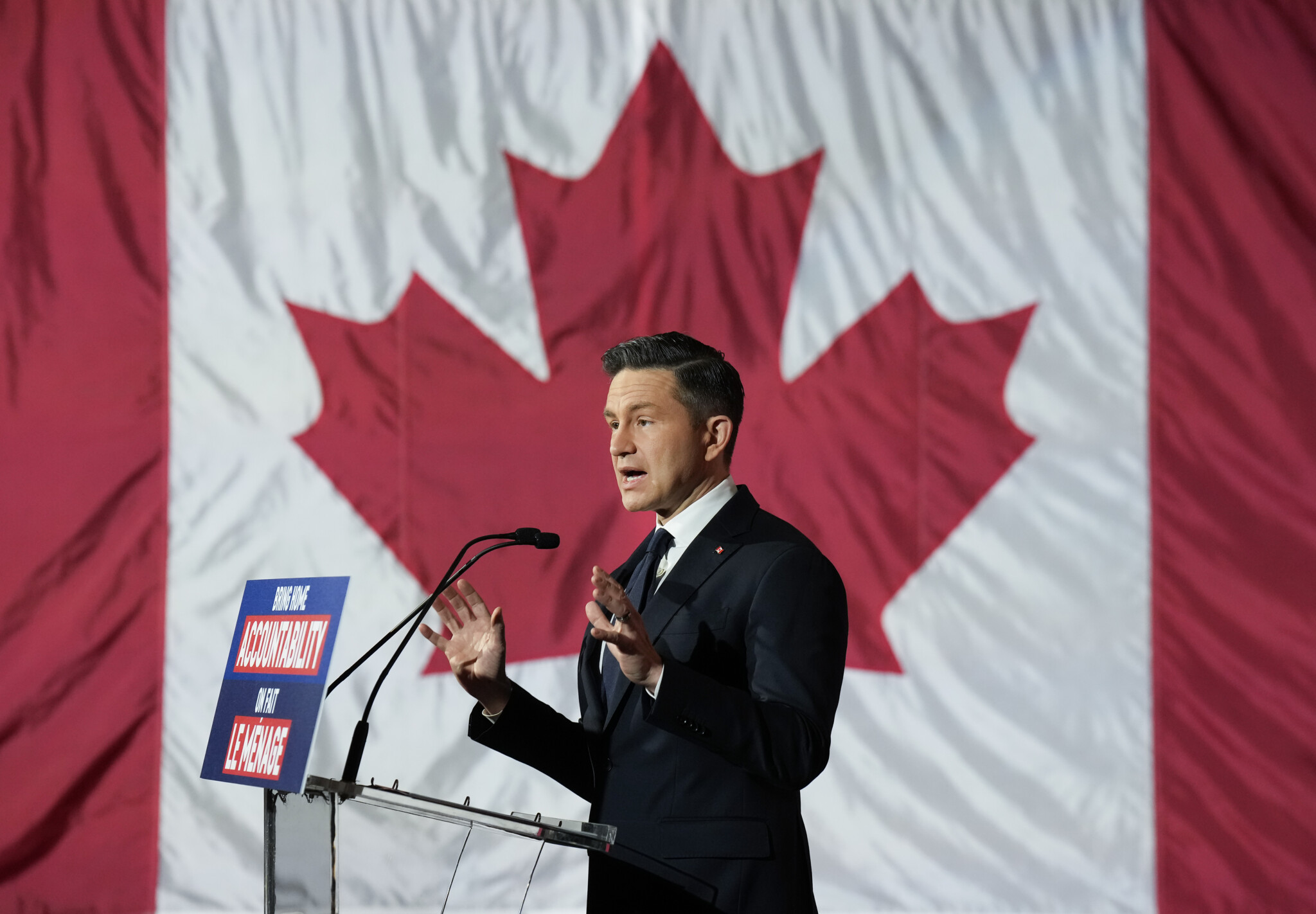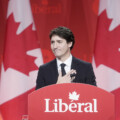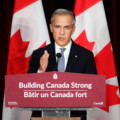There are two campaigns going on right now, and Pierre Poilievre is only winning one of them. The first is directed at younger Canadians like my generation, the Millennials. The past 10 years of Liberal government have not been good to us. Poilievre’s indictment of the “lost Liberal decade” and promises to unleash economic growth and bring down the cost of living still resonate with these younger voters.
The second campaign is basically just, “How can I use my vote to stand up to Donald Trump?” That’s the campaign that Mark Carney and the Liberals are winning, especially among wealthier and more educated Baby Boomers, whose home values and net worths have risen over the past decade, and who have the luxury of using their vote to make a point.Abacus Data’s latest polling release illustrates this stark contrast: among those 60 and older, 49 percent say dealing with Trump is the most important factor deciding their vote, compared to just 26 percent of 30 to 44-year-olds and 23 percent of 18 to 29-year-olds who say the same. Meanwhile, 47 percent of the younger voter cohorts say reducing cost of living is most important, while only 41 percent of those 60 and older say the same.
To borrow a phrase, I’m not mad, just disappointed in the shifting preferences of my parents’ generation. To me, it seems foolish to forgive a decade of Liberal misgovernance because Trump is going after us.
If my frustration is shared, it must be tempting for Poilievre and the Conservatives to throw up their hands and give up on these voters, but the size, strategic location, and propensity to vote of this constituency mean they don’t have that option.
Plus, if I squint, I can see a simple line of thinking from these anti-Trump voters: Trump says he’s on the Right, and so is Poilievre. I don’t like Trump, so I won’t vote for Poilievre. Plus, how can a guy who has any ideas in common with Trump stand up to him?
So far, Poilievre has tried to counter this by arguing his policies would strengthen the Canadian economy such that we would not be at the Americans’ mercy and would be able to stand up to Trump more effectively. That’s a good start.
Nationalism is a natural cause for Canada’s Conservatives
But Poilievre should go further. He should make the case that he isn’t Trump and that Canadian Conservatives are very different from MAGA Republicans. He should say that his is the party of Confederation, of peace, order, and good government, not the party of slash-and-burn; that it’s a party of loyalty, common sense, and practical, incremental reform, not the party of revolution or Trump-style chaos. Poilievre should make it clear that Canadian Conservatives are just that, Canadian, and that his party does not take its cues from south of the border.
Poilievre would be on strong ground to make that case as a matter of history. Canada was founded by people of a conservative disposition who didn’t want anything to do with the chaotic, revolutionary, and expansionist American experiment. These founders include the Loyalists who fought alongside the British to conserve the institutions of Crown and commonwealth during the Revolutionary War, the generations of French Canadians who sought to preserve their language and culture from the assimilationist power of American empire past and present, and the many Indigenous Peoples who moved north in the face of reckless Yankee expansion westwards. And, not to forget, the slaves who sought freedom under the Crown while the American republic would have kept them in chains.
It’s stirring stuff, and the kind of material Poilievre could use in a forceful, barnburner of a speech ripping into Trump’s expansionist agenda, directed mostly at voters for whom Canadian nationalism is the most important issue. The perfect setting? Queenston Heights in Niagara, the site of a decisive British and Canadian victory against the United States in the War of 1812—the last time they tried to make us the 51st state.
Trump likes to talk about America’s so-called “manifest destiny” to take over the whole continent. Poilievre should cite his own predecessor as Conservative Party leader, Prime Minister Sir John A. Macdonald, and his lifelong effort to build our great east-west country in defiance of that destiny, promising that, as prime minister, he would do the same. Poilievre’s policy announcement on Monday, outlining plans for an east-west energy corridor, which cited Macdonald as an inspiration, is a good start.
He should keep explicitly linking his plans to build pipelines and expand energy exports beyond the United States to the continental railway that was built only on Canadian territory to protect it from American interference so long ago. He could promise a new national policy that would build on Macdonald’s, defending our industries, expanding domestic markets, and working to export more of our goods to Europe and Asia.
Poilievre should lean into his strengths
As part of his case for a distinct Canadian conservative tradition, Poilievre could implicitly highlight the difference in approach between him and Trump. Both of them can have a pugilistic tone, but Poilievre can reinforce that he will provide stable, orderly, competent governance, fixing problems rather than creating them, pursuing common sense reforms rather than ideological projects like DOGE, tariffing allies, or cozying up to Putin. He can point to precedents like Mulroney and Harper as examples of the kinds of government he would lead. Importantly, Poilievre can say that he believes in values like loyalty, honesty, and keeping your word, an implicit but stark contrast to the behaviour we see in the White House these days.
Here, Poilievre’s rhetorical ability to be sharp, critical, and outraged actually works well. Unlike Carney, who tends to stutter and stumble, especially in French, Poilievre can effectively channel the nation’s sense of anger and betrayal at Trumpian America. To his credit, the man knows how to give a speech. And if Trump responds critically, so much the better. Poilievre is at his best when he’s fighting, and a war of words in which Poilievre is captain of Team Canada will enhance his image among the kinds of anti-Trump voters he needs to win.
A fair criticism of my proposal is that it could be a hard sell for Boomers blinded by their Trump-induced mania. But it’s still worth trying. Poilievre won’t persuade everyone he’s anti-Trump, but he could reassure and appeal to some of the older, wealthier Red Tories that he needs in the leafy suburban areas currently trending Liberal. Just a few months ago, those people were telling pollsters they would vote for Poilievre. Trump pushed them away, so putting more distance between himself and Trump would help to get some of them back.
So far, change and a stronger economy have been Poilievre’s sword issues, the ones he wants to fight the election with, while relations with the Trump administration have been his shield issue, the one where he feels defensive. But Poilievre is not defensive by nature, and events are forcing him to pick up that shield. It’s time for him to show voters he and his party are well-placed to stand up to Trump on our behalf. You fight the campaign you were given, not the one you wish you had been given. It’s time for Poilievre to get on it.










